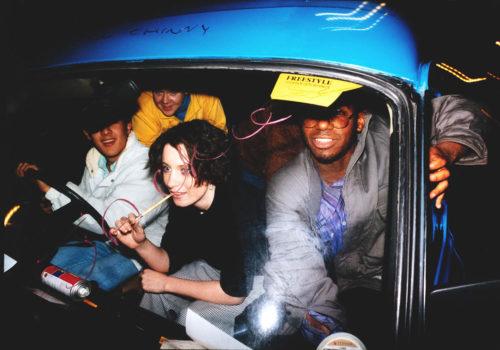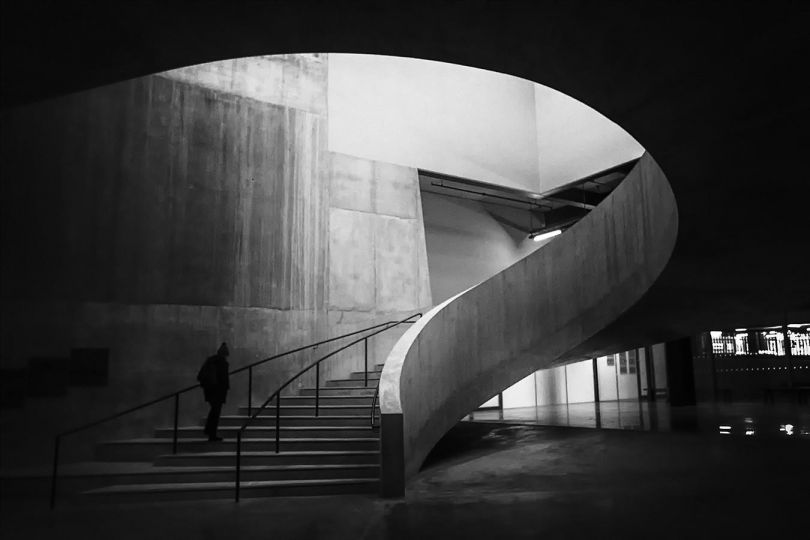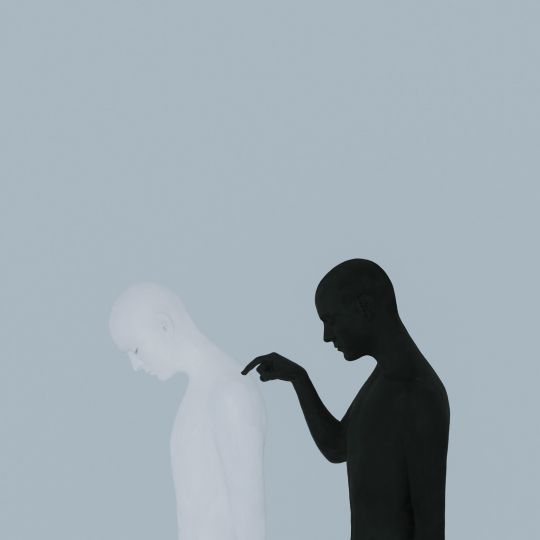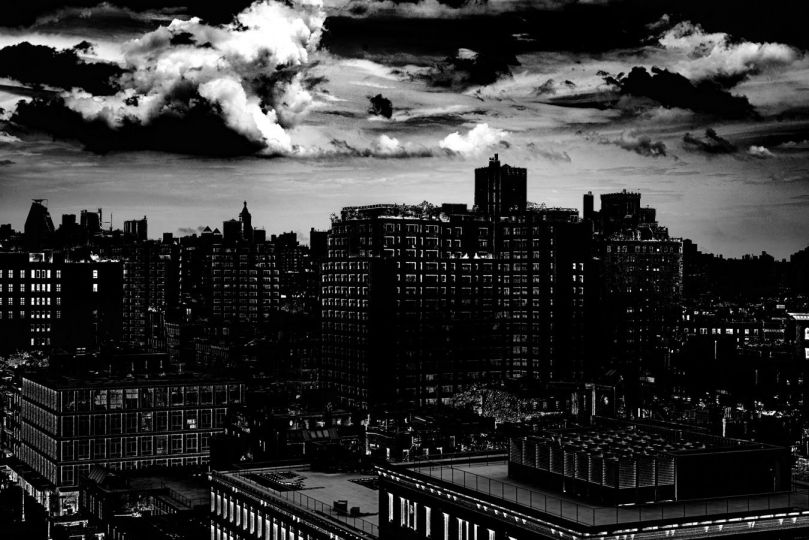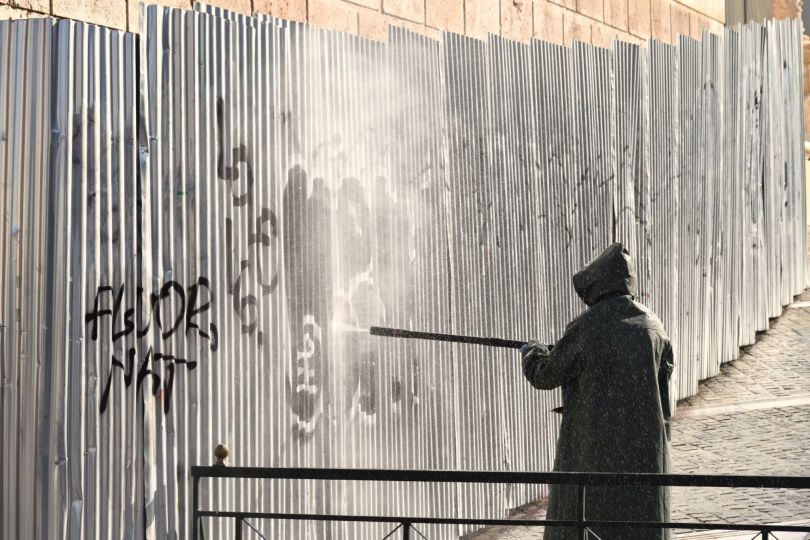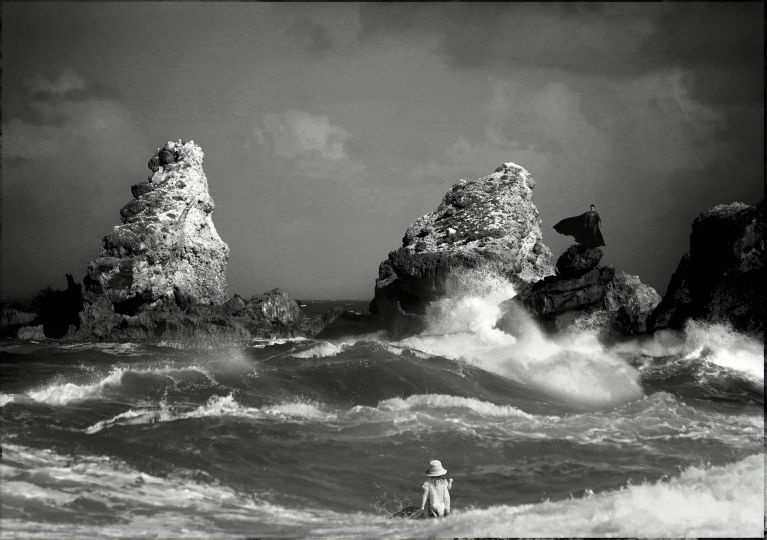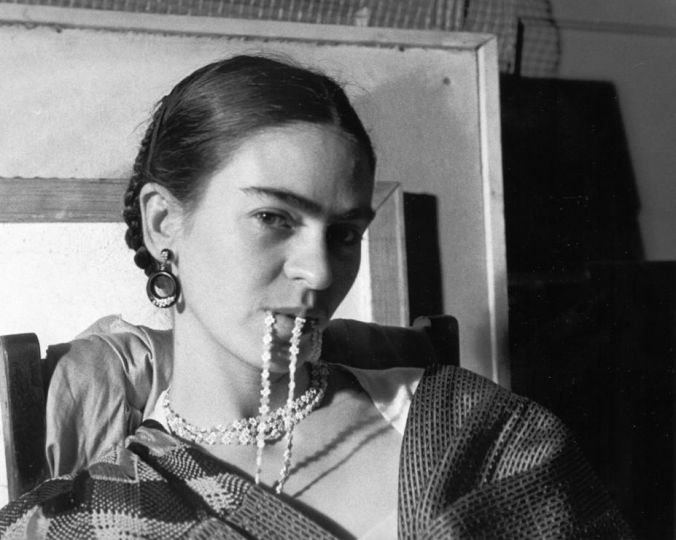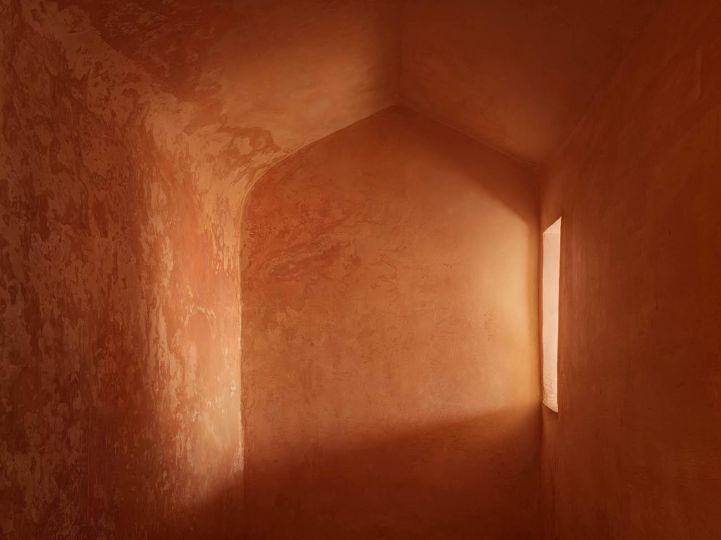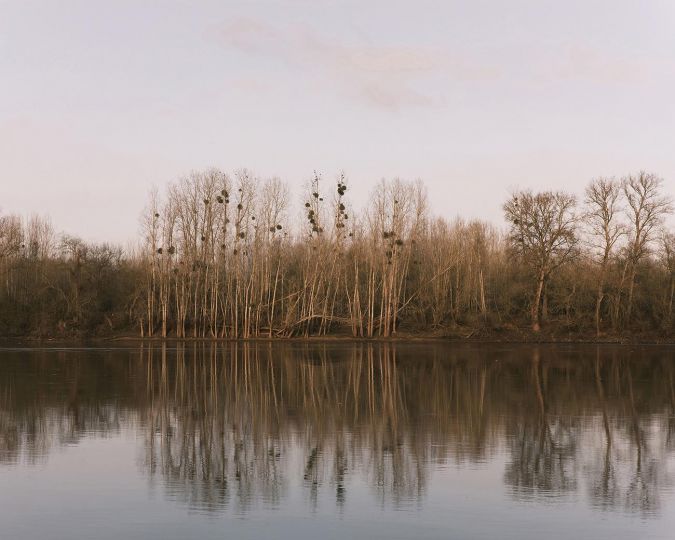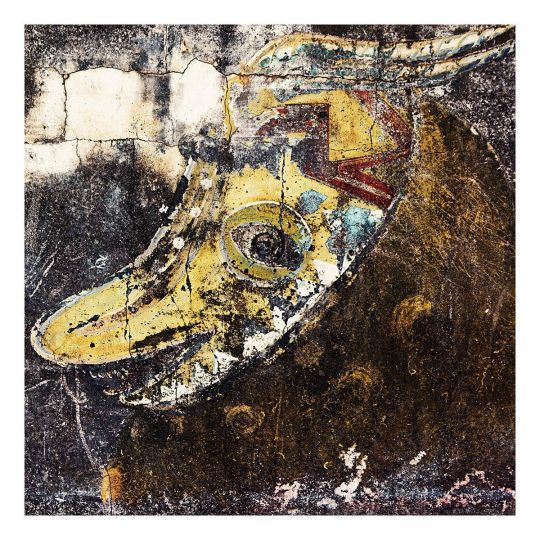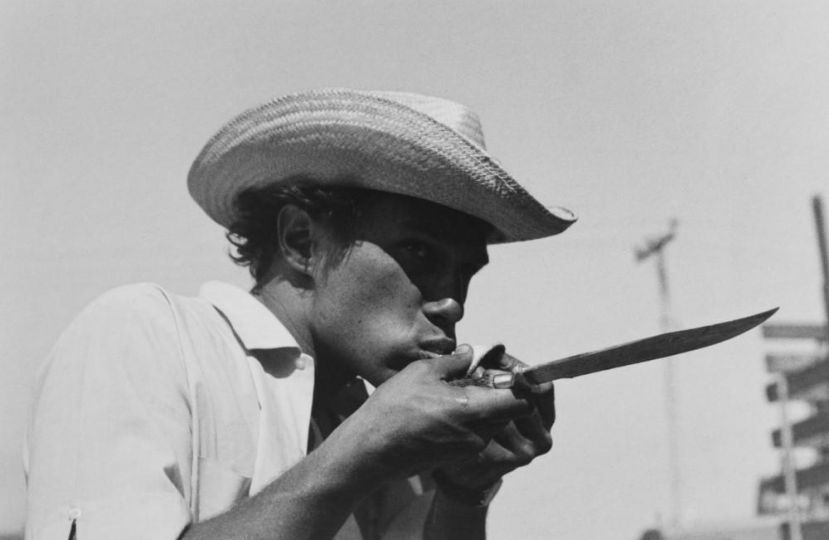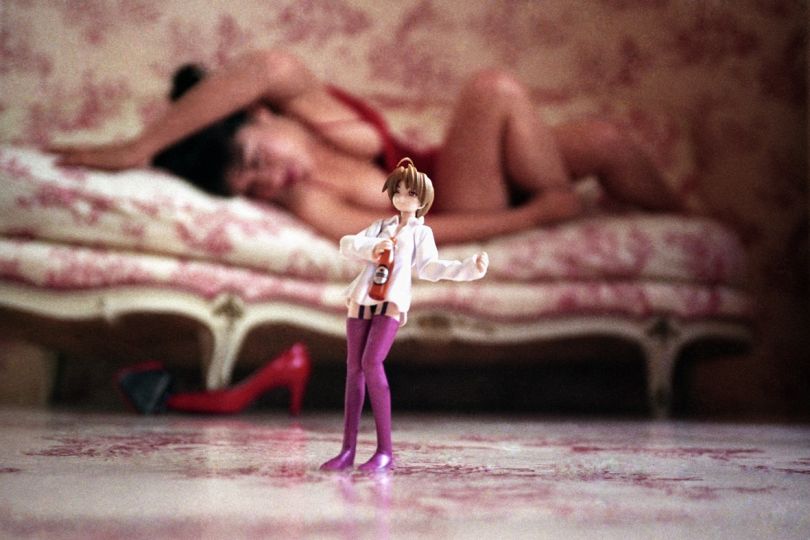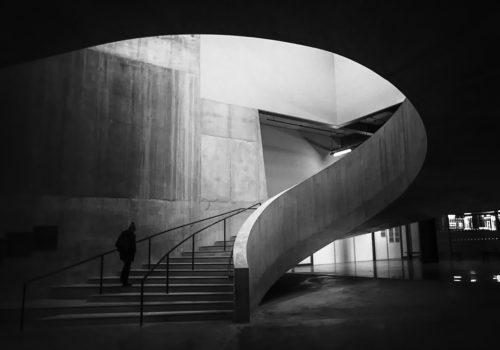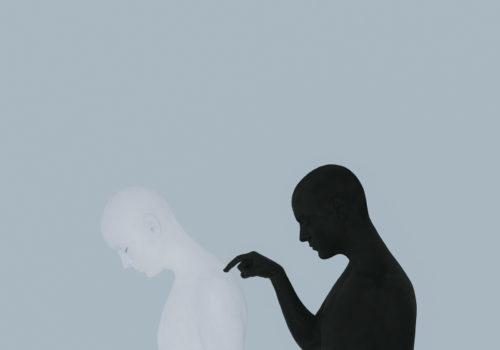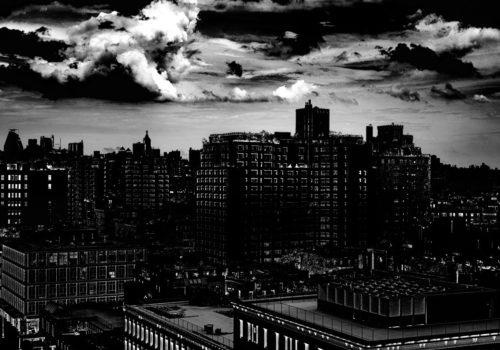I was like them. With these four words, Tom Wood tells us a lot about what binds him to those he has photographed in the streets of Liverpool since the 1970s, for more than thirty years. Trained in painting, he first used photography to reproduce his paintings, then very quickly for livelihood in the service of a wedding photographer. Of the click that made him put away the brushes and understand that photography would henceforth be his only medium, we will not know much more. Over the streets of Liverpool the wind of doom bringing changes has been blowing for some time now. Margaret Thatcher gave the country to the clutches of liberalism, factory closings multiplied, the working class suffered the brutal consequences. Liverpool, once one of the biggest ports in the world, has lost people and jobs. But it is not this fatality or the traumas of a class war that the photographer chose to illustrate, and if his images give a testimony of it, he repeats to anyone ready to listen that he refuses the label of documentary photographer. “The guy with the camera” – Photie Man – is the nickname that gave him the teenagers who like him hang out in the streets. This name validates his membership in the community, and defines him by the one little thing that sets him apart – the camera he always carries. Apart from that, he is like them: his father spent his life as a worker in the automobile industry, his mother could have been one of the women he photographs at the market on Fridays. This is probably why his gaze is so full of empathy, free from the caustic and contemptuous babble of judgment,morality, irony or cynicism. he also is free of the false distance of those who photograph to observe or to express a point of view, but who are not and never will be part of them. He does not give his opinion, but embraces this crowd as it comes and feeds on its formidable energy, Liverpool is a rebel city, the most left-wing in England, it proclaims its indifference to the monarchy and voted massively against Brexit. It was here that the Beatles grew up and the Merseybeat started,a rock surge that turned the city, then England, then the world, upside down.
Several photographic series intertwine in a rare coherence that could make us believe that for thirty years, Tom Wood was guided by a primitive intuition, a plan, and that today all the pieces of this gigantic urban fresco come together in a game of perfect mechanics.
In his first major series, Looking for Love, Tom Wood took us to the Chelsea Reach nightclub, which he frequented diligently for several years. Liverpool indulging in Saturday night madness. Cheerful, brutal, funny and wild. It’s time to forget resourcefulness and odd jobs, and to regain possession of a body free from work. In the darkness of the dance floor, the women sparkle, showing off lush hair styled in the latest fashion, earrings, make-up and ravishing lipstick. Dressed in ordinary jeans and shirts, the men ogle the girls and drink to give each other the courage to venture into the seduction rituals of disco dancing. We only need to close our eyes for a moment to smell the clammy air, feel the carpet sticking to the shoes, breath the smell of cigarettes and try the slippery dance floor.
If he passes easily from black and white to color, under his innocent airs Tom Wood is also a pioneer of color photography. He spent several years photographing Cammell Laird’s shipyard. The workers fight against the announced closure, in vain. Many of them have worked there for decades and their fathers before them; they are now destined to long periods of unemployment and hardship. Tom Wood draws up a gallery of portraits filled with humanity, closer to the generosity of a family album than to a reportage. In the belly of the ships, metal is worked on, he photographs welding sparks and a hurricane lamp in the twilight.
In the street, he photographs families, siblings, groups of friends, lovers. Whether they are walking, whether they are going to work or to the game, in this city where football is elevated to the rank of secular worship, they are the faces of the people who interest him, events or anecdotes, he moves away from. The stadium, he never enters it, and yet every Saturday evening he prowls around with his camera.
In his gaze, one can read the tenderness of one who contemplates with emotion the range of all the possible lives he could have lived. And he walks. Life goes on day after day 1.. Its strength: persistence and an eye sharpened by the thousands of hours spent watching. Day after day, he wrote an immense work.
- Gerry and the Pacemakers
Irishman Tom Wood (b. 1951) takes photographs almost every day. After studying fine arts at the Polytechnic of Leicester from 1973 to 1976, he moved with his family to Merseyside in 1978. Fascinated by experimental cinema, he then took chose photography which he discovered by himself. An autodidact therefore who remains faithful to chemistry, paper and the darkroom, a frenzied experimenter of technique, from the simplest to the most elaborate.
It was equipped with a Leica 35 that he surveyed Liverpool and the banks of the Mersey between 1978 and 2001 and decided to paint a portrait of the city and its inhabitants: streets, pubs, clubs, markets, construction sites, parks or football stadiums.
This portrait without ulterior motives of the working classes in the middle of large industrial wastelands and vacant lots configures a work without equal in contemporary photography.
Tom Wood : Everyday is Saturday
from June 23 to October 15, 2023
Centre d’art GwinZegal
4, rue Auguste Pavie, Guingamp
www.gwinzegal.com

